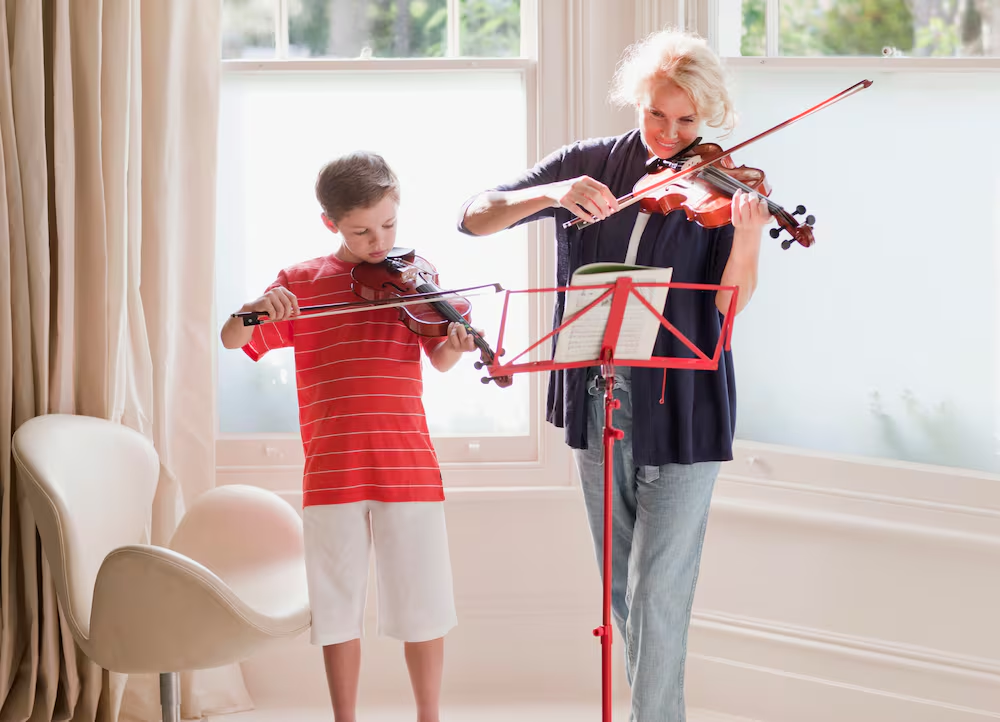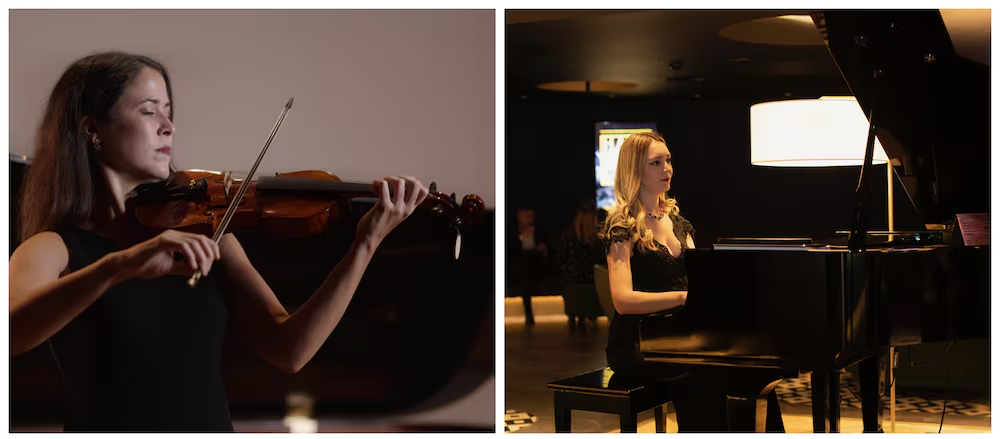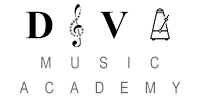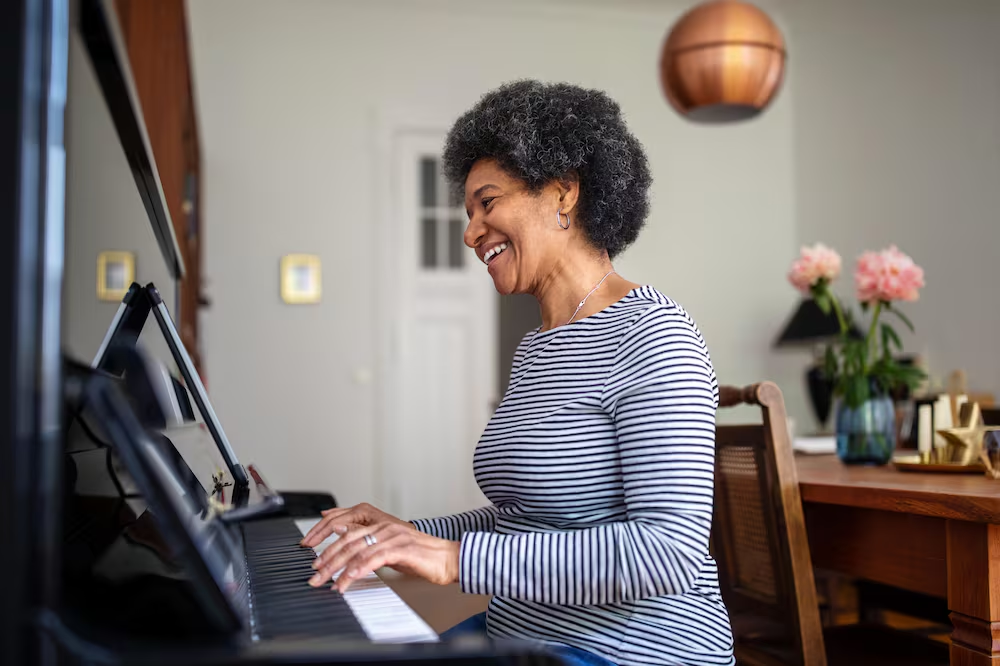by Gemma White (originally posted @ THE NATIONAL)
Picking up an instrument later in life could improve mental health and keep depression at bay
As an adult, it’s easy to come up with plenty of excuses to stop learning. There’s work and family plans, not to mention trying to fit in the gym, seeing friends, chores, side hustles, hobbies and more.
The idea of adding in another commitment may seem ludicrous. But when it comes to learning a musical instrument as a grown-up, the pros far outweigh the cons thanks to the many mental, physical and emotional benefits that come with it.
“Learning an instrument in any decade of your life is beneficial for the brain and in the prevention against dementia,” says Dr Manio Maravic, neurologist at German Neuroscience Center in Dubai. “Lifelong engagement in music is associated with better brain health among people over the age of 40.”
A study by the UK’s University of Exeter, published in January 2024 in the International Journal of Geriatric Psychiatry, found that playing an instrument was linked to better brain health in older adults.
The piano in particular, was singled out as especially beneficial thanks to the complexity required to learn the notes, leading to improved memory function and the ability to solve difficult tasks.
Why learn an instrument as an adult?
“I had been interested in learning the piano since childhood, but didn’t have the opportunity,” says Elham, a Dubai-based mother-of-four. Now 41, she began learning the piano at 37 after being inspired while watching her daughter’s lessons. “I felt intuitively connected and drawn to the instrument and would listen to a lot of piano music. I felt like I had the urge to play it and that it would feel nicer to play it than to listen to it.
“Watching the teacher teaching my daughter was the trigger for the little girl in me who had not learnt how to play. I then asked the teacher if she would teach me. I said that I know our dexterity and learning absorption changes over time but could she still teach me? She was lovely and said yes, of course.”
Taking up an instrument when you already have a busy schedule may seem like an outlandish idea, but looking at it as a way of practising self-care and taking time for yourself shifts the focus around why you’re taking on a new challenge.
Experts say lower stress levels, enjoying a sense of accomplishment and carving out specific times throughout the week to focus on personal development are all good reasons to learn an instrument.
“Learning a musical instrument can be both easier and harder as you get older,” says Tamara Tomanovic, principal pianist of Expo City Dubai’s all-female Firdaus Orchestra. “It’s easier in the sense that you may have more discipline and focus, but harder because your brain might be less adaptable to new skills compared to when you were younger. However, when someone has good will, hard work and dedication, anything is possible.”
Practising an instrument is also a way to move away from the phone and iPad screens and replace the dreaded doomscrolling with a practice that has proven mental health benefits.
In a 2013 study titled Effects of music learning and piano practice on cognitive function, mood and quality of life in older adults, researchers found that “piano lessons decreased depression, induced positive mood states, and improved the psychological and physical quality of life of the elderly”.
The difference between learning as a child and as an adult

There is some scientific evidence that children can pick up things faster and more easily than adults, but that doesn’t tell the whole story about adult-learning.
Children’s brains are more adaptable and able to absorb and process information quickly as an evolutionary mechanism aimed at survival.
The adult brain, while fully formed by the mid-to-late twenties, has the added benefit of applying discipline to new challenges, as well as drawing on a more mature approach to motivation and the lessons gained from their wider experience.
“I am very happy that I had the opportunity to teach piano to adults from completely different professions, from doctors to pilots, mathematicians, to people from the business world,” says Tomanovic. “They all have a common love for music and an unfulfilled childhood wish to learn to play the piano.”
Dr Maravic adds: “Adults can face several disadvantages in music. These are usually physical issues, such as the muscles, tendons and joints, which can be more rigid than in children. There are also factors such as learning being hindered by their own demands, such as wanting to see results very quickly or not being able to practice.
“However, the advantages are that adults can use more advanced strategies to learn and solve problems. They can also relate new concepts to their prior knowledge and apply what they have learnt in real situations.”
Finding a life balance in music (no matter how busy you are)

Ena Petkovic, a professor of violin and piano, says: “Playing an instrument brings great joy and excitement, especially when we get to play our favourite pieces of music. It can be a very sociable activity as well, or a special time for yourself. I would encourage everyone who ever had a wish to try it to start learning and nurture their passion for music.
“Learning music is very beneficial at any age. Co-ordination is mastered with studies and practice where our hands are performing different tasks at the same time. This brings our brain and body into a very active state, as well as reading notes and learning musical notation.”
For Elham, learning an instrument was a way to add creative balance to her life, process her moods and regulate her sleep patterns.
“I have a very analytical job,” she says. “My brain is all numbers all the time. After 15 years of that, and being pulled away from my interests and hobbies, I realised the creative part of my brain was not being stimulated. As a mature learner who has an intuitive and creative reason to play, I wanted to make space for creative energy in my life. I find it really meditative, so if I’m feeling worried, playing helps me to process any anxiety on a subconscious level. I also sleep better.”
She adds: “The music follows my moods. In some ways it’s a language for me like meditation, healing and soothing, but also something that helps me to play my role in life.”

